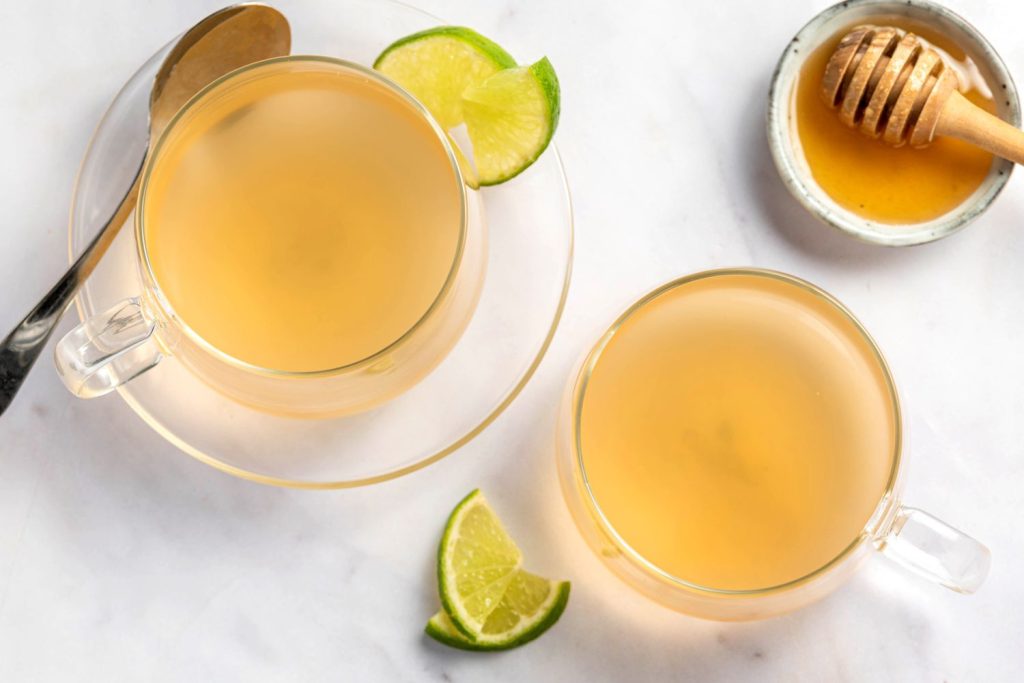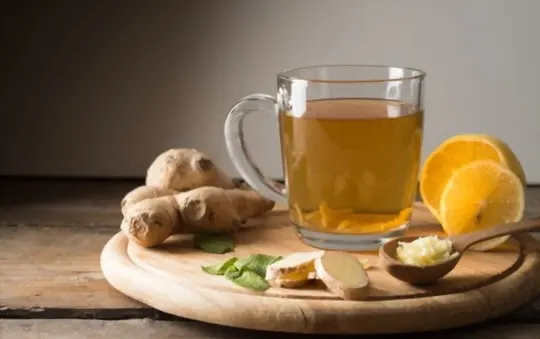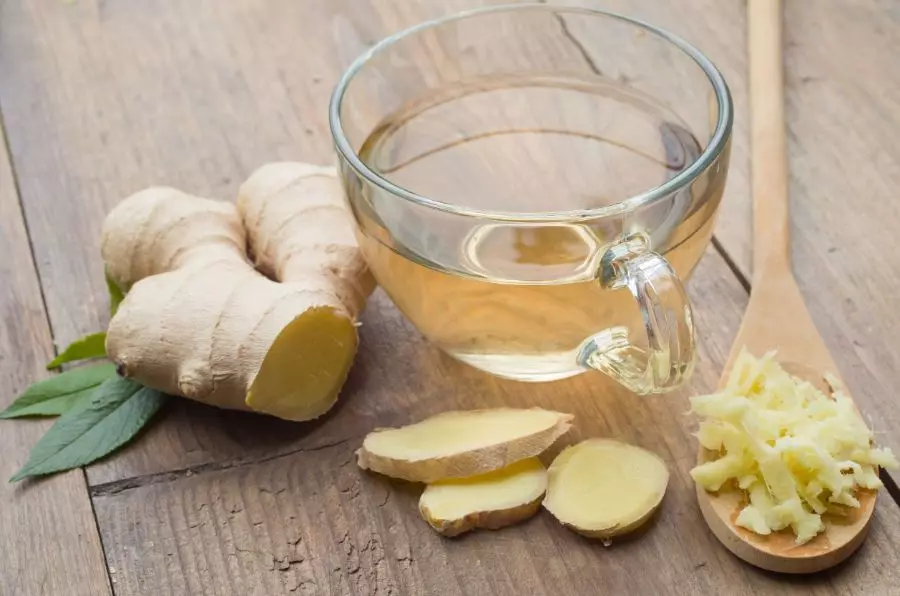Ginger, a knobby, fibrous root, has been celebrated for its unique flavor and health benefits for thousands of years. Originating from Southeast Asia, ginger has made its mark globally, finding its place in various cuisines, remedies, and even ancient scriptures. From the fiery curries of India to the delectable pastries of Europe, ginger has shown its versatility and allure.
Among the many ways ginger is consumed, ginger tea stands out as a popular beverage choice across continents. Whether it’s sipped in the quiet mornings of a Japanese household, served as a comforting remedy for colds in Latin America, or taken as a digestive aid after a hearty meal in an African home, ginger tea transcends borders.
What makes ginger tea so beloved? For some, it’s the medley of spicy warmth and aromatic sweetness it offers. For others, it’s the multitude of health benefits linked to its consumption. But before we delve into the world of ginger tea, let’s take a moment to unravel its taste. What does ginger tea taste like? And why does it captivate the palates of so many around the globe? Join us on this flavor-packed journey to find out.
What Does Ginger Tea Taste Like?
Ginger tea, in its most basic form, offers a flavor profile that can only be described as a delightful paradox. Here’s a deeper dive into its unique taste:
- Spicy and Warm: The first sip of ginger tea usually greets the tongue with a spicy kick, reminiscent of pepper but distinctly its own. This warmth isn’t the same as the capsaicin-induced heat from chili peppers. Instead, it’s a deeper, resonant warmth that seems to permeate through the senses, providing an inner warmth that’s especially comforting on cold days or when one is feeling under the weather.
- Aromatic Sweetness: Behind that initial fiery burst is an unexpected aromatic sweetness. It’s subtle, but it’s there – a gentle, almost woody sweetness that tempers the spiciness and provides a rounded depth to the flavor.
Recommended: What Does Jasmine Milk Tea Taste Like?
Freshness Matters
The taste of ginger tea can also hinge on the freshness of the ginger used. Fresh ginger root often lends a sharper, zestier flavor to the tea, while older or dried ginger might infuse it with a more muted, earthy taste.
Influence of Preparation
The strength of ginger’s flavor in the tea can vary based on how it’s prepared. A brief steep of a few slices will yield a milder beverage, while a longer steep or using grated ginger can intensify the taste. Boiling the ginger slices for a prolonged period, on the other hand, can extract deeper flavors, making the tea richer and more robust.
Complementary Ingredients
Ginger tea doesn’t always come alone. Common additions like honey can enhance its natural sweetness, while lemon can introduce a tangy contrast, making the tea more refreshing. These additions not only influence the taste but also augment the overall sensory experience of the tea, making it multi-dimensional.
Recommended: Does Panera Green Tea Have Caffeine?
In essence, ginger tea is a beverage of contrasts: it’s both fiery and soothing, bold yet subtle. It dances on the palate with its spicy notes and then mellows out, leaving a lingering sweetness and warmth.
It’s these intriguing contrasts and layers that make ginger tea an experience, not just a drink. Whether you’re new to it or have been savoring it for years, every cup of ginger tea promises a journey of flavors.

Factors Affecting the Flavor of Ginger Tea
The taste of ginger tea is not static; it can vary considerably based on several factors. Here’s a deeper exploration of the elements that can influence the flavor profile of this warming beverage:
1. The freshness of Ginger
- Fresh Ginger vs. Dried Ginger: Fresh ginger root typically brings forth a zestier and more vibrant flavor in tea. It has a juiciness that translates into a fresher-tasting brew. Dried ginger, on the other hand, imparts a milder and slightly different taste, often characterized by deeper, earthier notes.
- Age of the Ginger Root: Younger ginger roots tend to be milder and juicier with a slight lemony undertone. In contrast, mature ginger roots possess a stronger and more fibrous quality, often with a more pronounced spiciness.
2. Preparation Method
- Steeping Time: Just like brewing tea leaves, the duration you allow ginger to steep in hot water will impact its flavor strength. A quick steep will result in a milder flavor, whereas letting it sit for a longer time will intensify the taste.
- Water Temperature: The ideal temperature for extracting the flavors from ginger is just below boiling. Too hot, and you risk a bitter taste; too cool, and the flavors might not fully develop.
- Amount of Ginger Used: Using more ginger slices or grated ginger will naturally result in a stronger and spicier brew. Conversely, using less will make for a gentler, subtler cup.
3. Additions and Variations
- Honey: This natural sweetener can add a touch of smooth sweetness to the tea, rounding off its spicy edges and giving it a more balanced profile.
- Lemon: The tanginess of lemon contrasts beautifully with ginger’s warmth, offering a refreshing twist and enhancing the tea’s rejuvenating qualities.
- Other Herbs: Incorporating herbs like mint, basil, or lemongrass can transform the flavor of ginger tea, introducing new aromatic and taste dimensions. For instance, mint can add a cooling contrast, while lemongrass can heighten its citrusy notes.
- Ginger Tea Blends: Some enjoy blending ginger with other ingredients like turmeric, black tea, or even cinnamon. Each addition introduces a new layer of flavor, making the tea a more complex and intricate beverage.
Recommended: Does Chamomile Tea Stain Teeth?
The flavor of ginger tea is a beautiful tapestry woven with various threads, each contributing to its overall taste. Whether you prefer a straightforward brew or one bursting with added flavors, understanding these factors can help you tailor your ginger tea experience to your liking.
Benefits of Drinking Ginger Tea
Ginger tea isn’t just about its rich flavor profile; it’s also prized for its numerous health benefits. Consumed for centuries across various cultures, ginger has been hailed as a natural remedy for a range of ailments. Here are some of the significant benefits associated with drinking ginger tea:
1. Digestive Aid
- Soothes the Stomach:Ginger tea can help alleviate indigestion and soothe an upset stomach. It assists in neutralizing stomach acids and promoting the secretion of digestive enzymes, making it easier to digest food.
- Relieves Gas: Its carminative properties help in expelling gas and reducing bloating, making you feel lighter and more comfortable.
- Combats Nausea: Ginger is renowned for its efficacy in combating nausea, especially morning sickness during pregnancy and nausea induced by chemotherapy or surgery.
2. Anti-inflammatory Properties
- Fights Inflammation: Gingerol, a primary component in ginger, has potent anti-inflammatory effects. Regular consumption of ginger tea can help in reducing inflammation in the body, benefiting those with conditions like arthritis.
- Reduces Muscle Pain: Whether it’s from exercise or chronic conditions, ginger tea may help reduce muscle pain over time due to its anti-inflammatory qualities.
3. Immune System Booster
- Rich in Antioxidants: Ginger is packed with antioxidants that help combat free radicals in the body, thereby supporting overall health and reducing the risk of various diseases.
- Supports Respiratory Health: Its warming properties and the ability to soothe throat irritations make ginger tea a preferred choice during cold and flu seasons. It can also help in breaking down mucus, making it easier to expel.
4. Supports Cardiovascular Health
- Blood Pressure Regulation:Ginger tea may play a role in improving blood circulation and relaxing the muscles surrounding blood vessels, potentially helping in reducing blood pressure.
- Cholesterol Levels: Some studies suggest that ginger can reduce LDL cholesterol levels, thereby promoting heart health.
5. Natural Stress Reliever
- Calms the Mind: The warm, soothing nature of ginger tea can help in reducing stress and tension. Its aroma and flavor act as a mild sedative, helping in relaxation.
- Enhances Mood: Certain compounds in ginger can positively affect serotonin levels in the brain, which can enhance mood and combat feelings of anxiety or sadness.
6. Supports Weight Loss
- Boosts Metabolism:Ginger tea can help in raising the body’s metabolism, thereby aiding in burning more calories.
- Appetite Regulation: Consuming ginger tea may also assist in regulating hunger, and preventing overeating or binge eating.
Recommended: Is Chai Tea Good For Sore Throat?
Incorporating ginger tea into your daily routine can thus offer a wealth of health benefits. However, while ginger tea is generally considered safe for most people, it’s essential to note that excessive consumption can lead to adverse effects in some. Always consult with a healthcare professional if you have concerns or underlying health conditions.

How to Prepare the Perfect Cup of Ginger Tea
Crafting the perfect cup of ginger tea is both an art and a science. While the process is simple, the nuances can make all the difference in taste and health benefits. Here’s a step-by-step guide to help you achieve that perfect brew:
1. Choosing the Right Ginger
- Fresh vs. Dried: Fresh ginger root generally yields a more vibrant and zestier flavor, making it the preferred choice for many. However, dried ginger can offer a more concentrated and earthier taste. Depending on your preference, choose accordingly.
- Young vs. Mature: Young ginger is milder, juicier, and has a tender skin that’s easy to peel. Mature ginger is more fibrous and has a robust flavor. Again, select based on your desired taste intensity.
2. Preparing the Ginger
- Washing: Always wash the ginger root thoroughly under running water to remove any dirt or impurities.
- Peeling: Using a spoon or a peeler, gently scrape off the skin. However, if you’re using young ginger, you can even skip this step as the skin is quite tender.
- Slicing or Grating: Thinly slice the ginger if you prefer a milder flavor. For a more intense brew, grate the ginger, which exposes more surface area to the water and releases more of its juices.
3. Brewing the Tea
- Water: Start with fresh, cold water. The quality of the water can affect the final taste of the tea.
- Boiling: Bring the water to a boil in a pot or kettle. Once boiling, add the ginger slices or grated ginger.
- Simmering: Reduce the heat and let the ginger simmer for about 10-15 minutes. For a stronger flavor, you can extend this time up to 20 minutes.
- Steeping: After simmering, turn off the heat and let the ginger tea steep for another 5 minutes.
4. Straining and Serving
- Strain: Using a strainer, pour the tea into your cup, leaving the ginger pieces behind.
- Enhancements: At this point, you can customize your tea further. Add a slice of lemon for a refreshing twist, a spoonful of honey for sweetness, or even a pinch of turmeric for an added health boost and a slightly earthy flavor.
Tips for Flavor Enhancement
- Spices: Consider adding spices like cinnamon, cloves, or black pepper for added depth and complexity.
- Herbal Additions: Mint, basil, or lemongrass can introduce a new aromatic layer to your ginger tea.
- Sweeteners: Apart from honey, you can also consider using maple syrup, agave nectar, or even stevia to sweeten your tea.
Recommended: Can I Drink Beer After Tooth Extraction?
With these steps and tips in hand, you’re now equipped to craft a ginger tea that’s tailored to your taste and preference. Whether you want it robust and spicy or mild and soothing, the beauty of ginger tea lies in its adaptability. Enjoy your brewing journey and the comforting embrace of your perfect cup.
Conclusion
Ginger tea, with its intriguing blend of spice and sweetness, offers more than just a comforting sip; it’s a journey into centuries-old traditions and holistic well-being. From its rich tapestry of flavors to its myriad health benefits, this humble brew embodies nature’s ability to heal, comfort, and delight.
As you explore the nuances of ginger tea, remember that each cup holds a story, waiting to unfold on your palate and resonate within your soul. So, the next time you seek solace or rejuvenation, let a warm mug of ginger tea be your companion.
